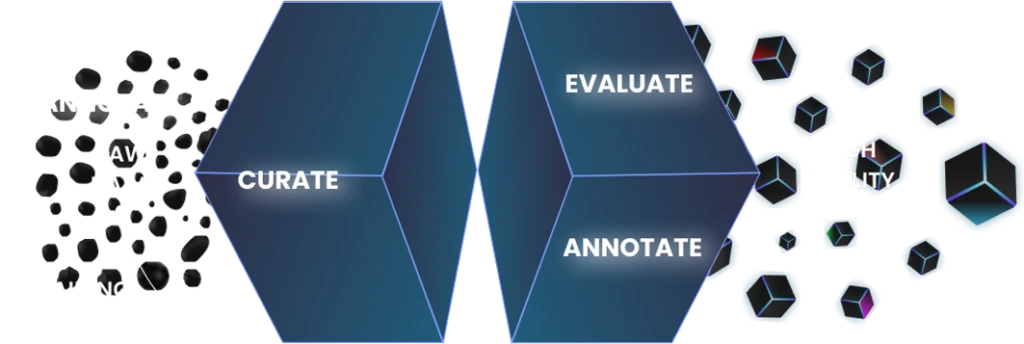Global Event and Language Tone Dataset
Home » Case Study » Global Event and Language Tone Dataset
Project Overview:
Objective
The GDELT project seeks to construct a repository of language tone dataset with linguistic analysis for interdisciplinary research. By monitoring news, broadcasts, and social media globally, GDELT provides insight into global events and their societal impact. Additionally, by tracking these sources worldwide, GDELT offers a comprehensive understanding of current events and their implications across different regions and cultures.
Scope
The GDELT dataset covers a broad spectrum of events, including politics, conflicts, disasters, economics, and culture. It gathers data from various sources, languages, and regions, providing a holistic perspective on global dynamics and linguistic representation. Moreover, it captures unfolding events in real-time, allowing analysts to monitor and analyze emerging trends. Additionally, its use of advanced natural language processing techniques aids in extracting valuable insights from extensive unstructured data.
Sources
- GDELT collects news from a wide array of online sources, encompassing traditional outlets, digital platforms, and niche publications.
- GDELT includes TV and radio broadcast transcripts, capturing spoken language data and sentiment from audiovisual media alongside textual news.
- Social Media Posts: The dataset contains social media posts from platforms like Twitter, Facebook, and Instagram, offering real-time insights into public discourse and sentiment on diverse topics.

Data Collection Metrics
- Total Data Collected: Over 3.5 billion events recorded since 1979, with ongoing updates in real-time.
- Multilingual Coverage: GDELT captures data in multiple languages, facilitating cross-cultural analysis and linguistic research.
- Granularity: Granularity: Events are categorized based on their type, location, actors involved, and sentiment expressed, thereby enabling detailed analysis at both global and local levels.
Annotation Process
Stages
- Event Extraction: GDELT utilizes advanced natural language processing (NLP) methods to extract and categorize events from textual sources. Through these techniques, GDELT identifies crucial elements such as event type, location, and participants, enabling comprehensive event analysis.
- Sentiment Analysis: Textual data within GDELT undergoes rigorous sentiment analysis to discern the tone and emotional context associated with each event. This analysis encompasses a spectrum of sentiments, ranging from positive and neutral to negative, providing nuanced insights into public sentiment.
- Language Tone Classification: GDELT employs sophisticated linguistic analysis techniques to classify the overall tone of news coverage and public discourse surrounding events. By examining linguistic features such as word choice, syntax, and semantics, GDELT can categorize the tone of language used, contributing to a deeper understanding of global dynamics.
Annotation Metrics
- Event Categorization: GDELT classifies events into a hierarchical taxonomy based on their nature, ranging from geopolitical events and conflicts to social movements and cultural phenomena.
- Sentiment Labels: Each event is assigned sentiment labels (positive, neutral, negative) based on the prevailing emotional tone conveyed in associated textual data.
- Language Tone Classification: Linguistic tone categories (e.g., optimistic, pessimistic, neutral) are assigned to news articles and social media posts, providing insights into the prevailing attitudes and perceptions surrounding global events.
Quality Assurance
Stages
Accuracy Assessment: GDELT employs both automated and manual quality assurance methodologies to ensure the accuracy and reliability of event categorization, sentiment analysis, and language tone classification processes.
Cross-Validation: The dataset undergoes rigorous cross-validation procedures, comparing it against various sources and external benchmarks. This validation method ensures the consistency and legitimacy of the extracted information across multiple data points.
Continuous Improvement: GDELT continually improves by actively seeking feedback and contributions from users. This loop enables algorithm refinement, updates to annotation guidelines, and enhances overall dataset quality over time.
QA Metrics
- GDELT consistently surpasses industry benchmarks in event extraction accuracy, boasting high precision and recall rates. Its accuracy metrics consistently exceed expectations, making it a standout performer in event detection.
- Sentiment Analysis Performance: The sentiment analysis component demonstrates robust performance in capturing nuanced emotional nuances, achieving high concordance with human annotators.
- Language Tone Classification: Automated tone classification algorithms achieve robust agreement with human judgments, thus furnishing dependable insights into linguistic tone variations across various events and contexts.
Conclusion
The Global Database of Events, Language, and Tone (GDELT) dataset serves as an indispensable tool for researchers, analysts, and policymakers. By collating and examining vast data from numerous sources and languages, GDELT offers unparalleled insights into global dynamics and linguistic patterns. With its extensive coverage, GDELT facilitates informed decision-making and academic exploration across various domains, enabling stakeholders to comprehend and address global events and trends adeptly.

Quality Data Creation

Guaranteed TAT

ISO 9001:2015, ISO/IEC 27001:2013 Certified

HIPAA Compliance

GDPR Compliance

Compliance and Security
Let's Discuss your Data collection Requirement With Us
To get a detailed estimation of requirements please reach us.
